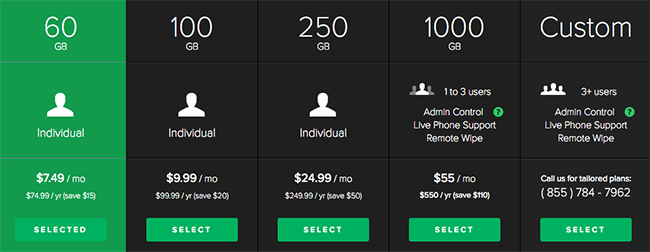
SugarSync, one of the pioneers of freemium cloud storage, announced today it was ending its free service. From now on,the minimum account will be 60 gigabytes of storage for $7.49 a month or $75 a year. SugarSync had offered a permanently free 5 GB account.
“There are many companies in this space that are giving away free storage, however, most of these companies will not be viable,” SugarSync CEO Mike Grossman said in a statement. “We are already in a solid financial position and this shift will further strengthen our business. Also, this change will allow us to better serve loyal customers and expand our service offerings. ”
SugarSync will continue to offer a 90-day free trial of a 5 GN account or a 60 GB plan free for 30 days.
Unless free accounts generate a high conversion rate to the paid service, free just isn;t a very good business model for businesses not supported by ads. Storage has gotten cheap, but it is not free, and the bandwidth required to move data in and out of storage is even more expensive. Other freemium services, such as Dropbox, which offers a 2 GB free account, are likely feeling similar pressures. (Free services are more likely to persist where they are part of larger offerings with broader monetization goals, such as Google Drive and Microsoft SkyDrive.)
If you use more than one computer with any regularity, SugarSync, which provides many-to-many sync, not just cloud storage, is a terrific service well worth the cost of a paid account. I use it as a complement to Dropbox (and occasionally GoogleDrive and SkyDrive.) I use SugarSync to keep specified directories synced between different systems. I use Dropbox for ad hoc sharing of files among my own systems, and for selective sharing with others, especially for files too big to move by email.

Sign up with this link and you will get 20 GB free from copy.com https://copy.com?r=VHgAbW
Nice post. I learn something new and challenging on blogs I stumbleupon on a daily basis.